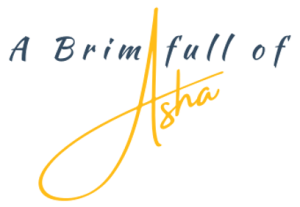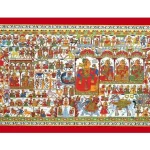
We read “Lessons in Chemistry” at our book club recently which everyone loved. Dr. Lakshmi Rajgopal, retired Consultant Radiologist, reviews the book:
“Lessons in Chemistry”, by Bonnie Garmus, is a debut novel about a scientist in the 1960’s who is opinionated, inflexible and intelligent. Unfortunately, Elizabeth Zott has been brutally sidelined by male colleagues. How, exactly, she was cheated out of a doctorate and lost the love of her life — Calvin Evans, a kindred spirit, expert rower and the father of her daughter, Madeline — are central elements in the story, but feminism forms the crux.
As the novel opens in 1961, Elizabeth is a 30-year-old single mother and the reluctant, “permanently depressed” star of a cooking show for housewives called ‘Supper at Six’. By training she is a research chemist, though her academic career has taken a setback despite her obvious talent. Female scientists are viewed with suspicion by their male colleagues. Right from her earliest undergraduate days, Elizabeth has been subject to attacks on her reputation and her person, from the major – sexual assault and theft of her work – to the casual everyday misogyny meted out by people, including other women, who see her independence and single-mindedness as a threat. Even when she finds her soulmate, Nobel-nominated chemist Calvin Evans, their happiness further provokes her jealous rivals.
She is a ground-breaker and an expert in abiogenesis (“the theory that life rose from simplistic, non-life forms”). After she is fired and finds herself pregnant without a partner in those conservative times, she perseveres and converts her kitchen into a lab equipped with beakers, pipettes and a centrifuge in order to pursue science.
She gets persuaded into hosting a staid television cooking show called ‘Supper at Six’ which she accepts in order to pay the bills and raise her child. But she isn’t going to smile, wear figure-hugging dresses and read the cue cards. She turns out to be an ace performer like her father whom she hated exactly for this reason. She brings scientific methods and analytical thinking into her shows and is a hit with the audience.
A stew or a casserole is a grand experiment to be undertaken with utmost seriousness. Each episode is offered with a healthy serving of empowerment. Elizabeth’s mantra is – cooking is chemistry and chemistry is life. One has to embrace change at every stage in life. She motivates women to aspire for other things in life and follow their dreams. She also inspires them to undertake physical exercise and shun drugs to stay skinny to meet the expectations of society.
In addition to her serious look at the frustrations of a generation of women, Garmus adds plenty of light-hearted stories. There’s a mystery involving Calvin’s family and a look at the politics and dysfunction of the local television station. There’s Zott’s love affair with rowing and her unconventional approach to parenthood and her deep connection to her dog, Six-Thirty.
Still, beyond the entertaining subplots, is the hard truth that, in 1961, a smart, ambitious woman had limited options. We see how a scientist relegated to the kitchen found a way to pursue a watered-down version of her own dream. We see how two women working in the same lab had no choice but to turn on each other. We meet Zott’s friend and neighbour, Harriet, who is trapped in a miserable marriage to a man who is abusive.
Also, about two men of the church who tell lies to meet their ends.
It was tough for all the real-life women born ahead of their time — women who were sidelined and worse because they weren’t as resourceful, determined and lucky as Elizabeth Zott. She’s a reminder of how far we’ve come, but also how far we still have to go.
Vidur Bhatia adds a few of his favourite passages in the book:
“Neither of them had wanted children, and Elizabeth still fervently believed that no woman should be forced to have a baby. Yet here she was, a single mother, the lead scientist on what had to be the most unscientific experiment of all time: the raising of another human being.”
“Life’s a mystery, isn’t it? People who try and plan it inevitably end up disappointed.”
“Harriet had produced four children, each one completely different from the others and wholly different from herself. And now? They were all strangers, each living in a far-off city with lives and children of their own. She wanted to think there was some iron-clad bond that connected her to them for life, but that’s not how it worked. Families required constant maintenance.”
“Humans naturally want to belong – it’s part of our biology. But our society makes us feel that we’re never good enough to belong. Do you know what I mean Phil? Because we measure ourselves against useless yardsticks of sex, race, religion, politics, schools. Even height and weight –”.
“Despite what Elizabeth Zott will tell you, Supper at Six is not just an introduction to chemistry he wrote that day on the plane. It’s a thirty-minute, five-day-a-week lesson in life. And not in who we are or what we’re made of, but rather, who we’re capable of becoming.”




